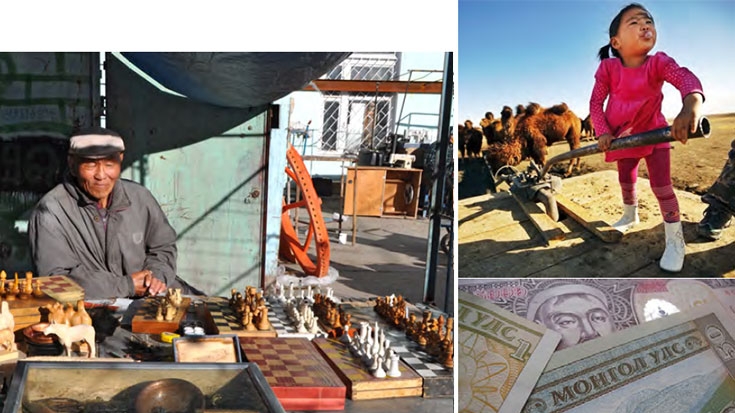Ulaanbaatar – On September 11, 2013, the World Bank presented the findings of its news report Paving the Road to Better Financial Decision-Making in Mongolia.
The report uses a representative survey of 2,500 households around the country to assess the extent of their use of financial services, their understanding of the various financial products offered by financial service providers (e.g., banks, savings cooperatives), and their ability to manage their financial resources – from planning a budget to saving for the future.
“As Mongolia transforms itself into a middle-income country and as financial service providers offer a greater variety but also a greater complexity of financial products, it is important to ensure that consumers have the information and understanding necessary to make the best financial decisions for themselves,” said Coralie Gevers, Country Manager for the World Bank in Mongolia,
The survey confirmed the high level of participation in formal financial markets: almost 80 percent of the survey respondents save at a bank, whereas two out of five hold a formal loan. Only a third prefer keeping their money under the mattress. Most importantly, an overwhelming majority are satisfied with their service providers, in particular banks.
”Still, many Mongolians appear to have a limited understanding of some of basic financial concepts required to make optimal savings and investment decisions,” noted Siegfried Zottel, Economist at the World Bank and lead author of the survey report, “as is the case for many countries at a similar income level.” For instance, around one third of the survey participants struggle to understand what interest rates are and more than 60 percent do not possess knowledge of how inflation affects their savings. Commercial banks are widely known as financial service providers, but awareness of broader financial services offered by insurance companies, microfinance organizations (MFOs) or other financial institutions (FIs) is limited.
The report makes a number of suggestions to boost financial knowledge and to pave the road to better financial decision-making of potential users of savings and investment products. Proposals range from featuring financial education messages through TV soap operas, films, or radio programs, to reach adult audience and including financial education through games in the school curriculum, to developing targeted information materials for consumers when they get married or take on their first mortgage.
“Financial stability in the country depends on a number of aspects, and financial literacy of users of financial products and services plays a very important role,” said Marius Vismantas, Financial Sector Program Coordinator for the World Bank in Mongolia. “Educated consumers who are capable of taking well-informed financial decisions strongly contribute to the overall financial stability. The providers of financial services also have it in their interest to have informed and savvy clients, as this leads to provision of optimal solutions to clients and better resource allocation in the financial sector.”
The report was prepared in cooperation with the Bank of Mongolia, the Financial Regulatory Commission, and the Ministry of Finance. It benefited from financial support from USAID.

